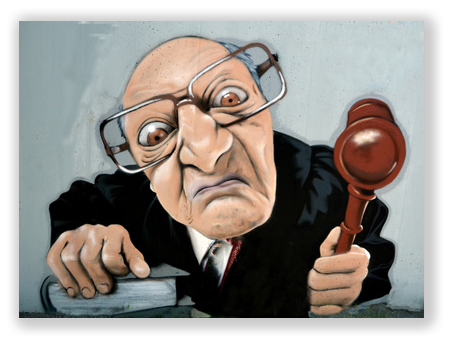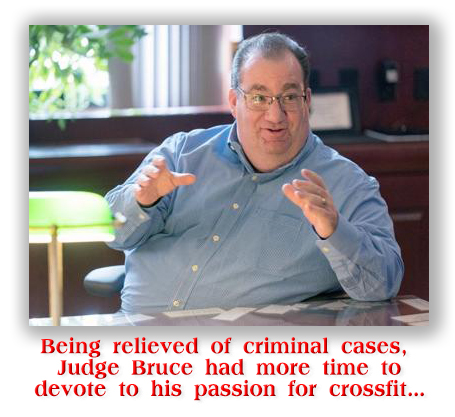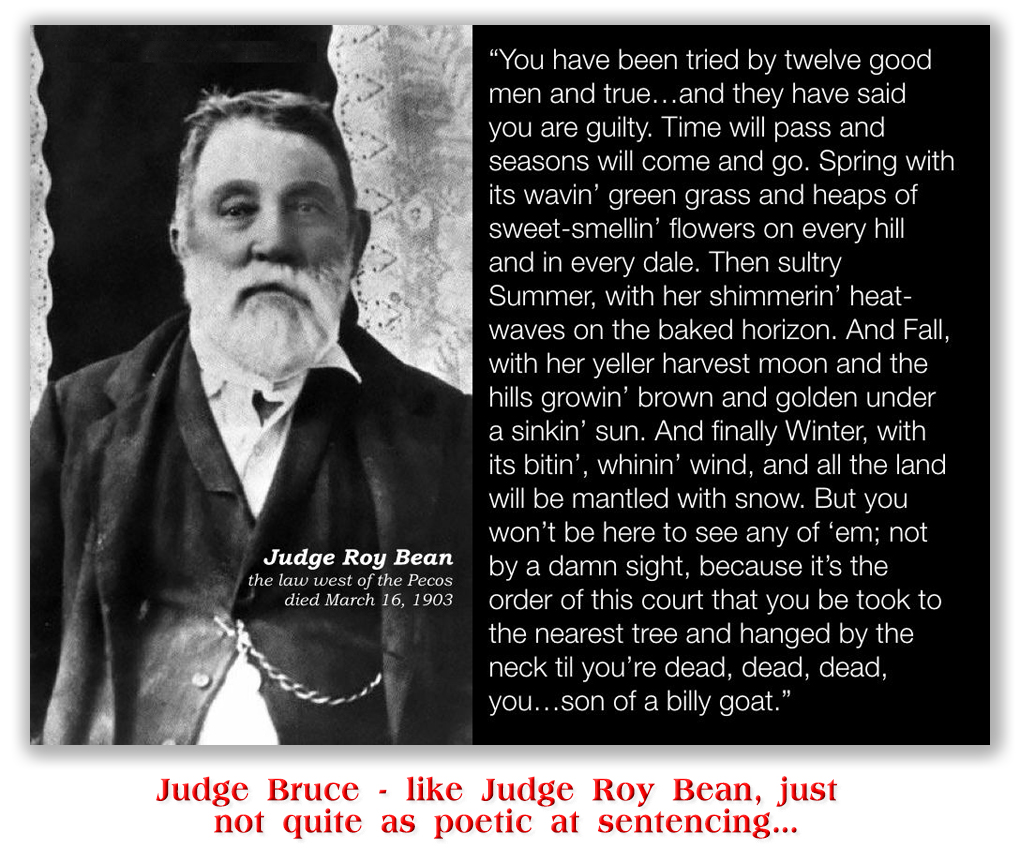We post news and comment on federal criminal justice issues, focused primarily on trial and post-conviction matters, legislative initiatives, and sentencing issues.

THE JUDGE WASN’T UNFAIR ENOUGH
 Randy Williams was convicted of Hobbs Act robbery after a summer 2018 jury trial presided over by U.S. District Judge Colin Bruce. While it certainly must have been a significant event to Randy (as it is to most defendants), it was a pretty commonplace occurrence in the annals of federal criminal law. Happens every day…
Randy Williams was convicted of Hobbs Act robbery after a summer 2018 jury trial presided over by U.S. District Judge Colin Bruce. While it certainly must have been a significant event to Randy (as it is to most defendants), it was a pretty commonplace occurrence in the annals of federal criminal law. Happens every day…
Except that the presiding judge was Judge Bruce. You remember the good Judge, don’t you? He spent 24 years in the United States Attorney’s office, and somehow – after he put on his robe – His Honor (and I use that term as an honorific, not because it is deserved) could not quite leave the prosecutor’s office behind.
The scandal started about a month after Randy was convicted, when the Springfield, Illinois Times reported that Judge Bruce had been engaged in ex parte contacts with the US Attorney’s Office during a criminal trial (but not Randy’s).
 The 7th Circuit Judicial Council yanked Judge Bruce from all criminal cases and investigated him, finding the Judge had sent or received over 1,200 communications with people in the USAO. About 100 of the messages were potential prohibited ex parte communications about cases pending before him, concerning warrant approvals, appeals, scheduling matters or defendant’s conduct on bond.
The 7th Circuit Judicial Council yanked Judge Bruce from all criminal cases and investigated him, finding the Judge had sent or received over 1,200 communications with people in the USAO. About 100 of the messages were potential prohibited ex parte communications about cases pending before him, concerning warrant approvals, appeals, scheduling matters or defendant’s conduct on bond.
In others, Judge Bruce addressed former colleagues by nicknames and congratulated them on favorable outcomes. In one email, Judge Bruce complained that an AUSA was “entirely unexperienced” and had turned a “slam dunk” case into a “60‐40” for the defendant. In others, Judge Bruce reassured former colleagues after they made filing mistakes. In one instance, he stated “My bad. You’re doing fine. Let’s get this thing done.” In another, he suggested that an Assistant United States Attorney (the line prosecutors in the USAO) call his boss “and advise” him of an adverse development, while noting that luckily “they have an understanding judge who doesn’t get angry.”
A Judicial Council special committee ultimately found “no evidence” that Judge Bruce’s conduct or ex parte communications affected any of his rulings or favored either party in cases before him. Except for the Nixon case, the Special Committee said, it saw “no evidence of Judge Bruce discussing the merits of pending cases with the U.S. Attorney’s Office ex parte.” Nevertheless, the Judge was ordered not to handle any criminal case for a year.
Randy’s case was assigned to another judge for sentencing. But nevertheless, on appeal, Randy demanded that his conviction be set aside because Judge Bruce’s ex parte communications with the US Attorney’s office violated both Rick’s due process rights and the federal recusal statute. While none of the emails concerned Randy’s case, some of them did concern the AUSA and paralegal who represented the government in Randy’s case.
Last week, the 7th Circuit turned Randy down. It noted that judges are disqualified for bias only in limited circumstances. First, actual bias is disqualifying. Second, “an impermissible risk of actual bias” exists when a judge earlier had significant personal involvement as a prosecutor in the case. Third, a judge is disqualified when he or she has a financial incentive in the case’s outcome. Finally, a judge should recuse himself when he or she becomes “personally embroiled” with a litigant.
“This case does not fit into these buckets,” the Circuit held. Instead, the Special Committee found no evidence that Judge Bruce’s conduct or ex parte communications affected the case, or that he had a financial interest in the outcome, had previously worked on the case as a AUSA, or became “personally embroiled” with the parties.
 The plain fact is that Randy was convicted in a courtroom that contained two prosecutors, one defendant and no judge. If Judge Bruce possessed a moral compass that pointed to true north instead of to the gallows, he would have resigned. Ah, well… O tempora, O mores! Nevertheless, it takes a special kind of myopia to pretend that a judge that maintained a back-channel to the U.S. Attorney’s office, using it to serve as the USAO’s biggest cheerleader, would nevertheless be perceived by the public to be fair and impartial.
The plain fact is that Randy was convicted in a courtroom that contained two prosecutors, one defendant and no judge. If Judge Bruce possessed a moral compass that pointed to true north instead of to the gallows, he would have resigned. Ah, well… O tempora, O mores! Nevertheless, it takes a special kind of myopia to pretend that a judge that maintained a back-channel to the U.S. Attorney’s office, using it to serve as the USAO’s biggest cheerleader, would nevertheless be perceived by the public to be fair and impartial.
United States v. Williams, 2020 U.S. App. LEXIS 4167 (7th Cir., February 11, 2020)
– Thomas L. Root

